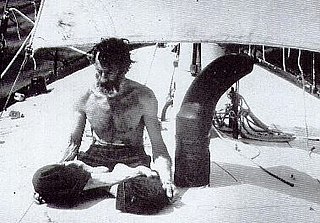A Quote by Mahatma Gandhi
Final Satyagraha is inconceivable without an honorable peace between the several communities composing the Indian nation.
Quote Topics
Related Quotes
I am a citizen of the most beautiful nation on earth, a nation whose laws are harsh yet simple, a nation that never cheats, which is immense and without borders, where life is lived in the present. In this limitless nation, this nation of wind, light, and peace, there is no other ruler besides the sea.
I am committed to furthering the self-determination of Indian communities but without terminating the special relationship between the Federal Government and the Indian people. I am strongly opposed to termination. Self-determination means that you can decide the nature of your tribe's relationship with the Federal Government within the framework of the Self-Determination Act, which I signed in January of 1975.
Several devices he has to draw souls to sin, and several plots he has to keep souls from all holy and heavenly services, and several stratagems he has to keep souls in a mourning, staggering, doubting and questioning condition. He has several devices to destroy the great and honorable, the wise and learned, the blind and ignorant, the rich and the poor, the real and the nominal Christians.
Without union our independence and liberty would never have been achieved; without union they can never be maintained. Divided into twenty-four, or even a smaller number, of separate communities, we shall see our internal trade burdened with numberless restraints and exactions; communications between distant points and sections obstructed or cut off; our sons made soldiers to deluge with blood the fields they now till in peace...The loss of liberty, of all good government, of peace, plenty, and happiness, must inevitably follow a dissolution of the Union.





































